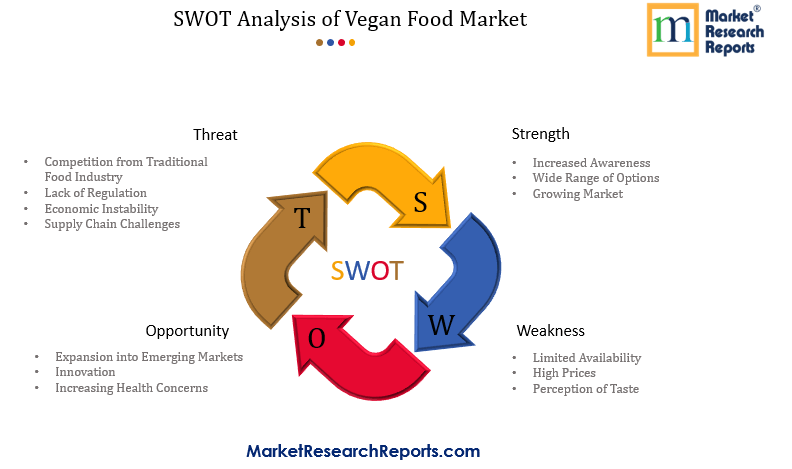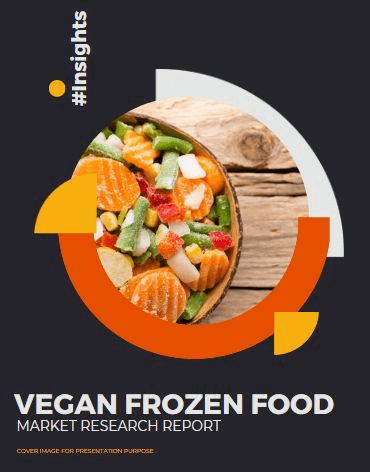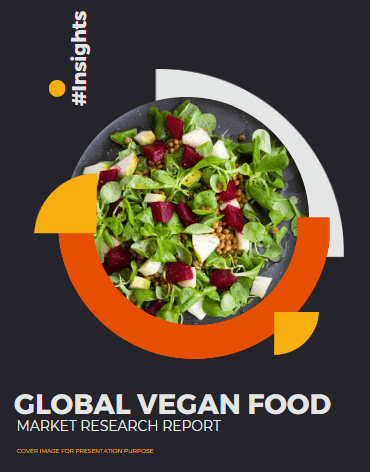A detailed SWOT analysis of the vegan food industry can help the industry identify its strengths, such as a growing awareness of the benefits of a plant-based diet and a wide range of options, as well as address its weaknesses, such as limited availability and high prices. By doing so, the industry can capitalize on opportunities, such as the growing demand for plant-based products, and mitigate threats, such as competition from the traditional food industry and lack of regulation.
The SWOT analysis provides a comprehensive overview of the industry, allowing companies to make informed decisions about their strategies and operations. By leveraging its strengths, addressing its weaknesses, capitalizing on opportunities, and mitigating threats, the vegan food industry can continue to grow and succeed in a competitive and rapidly evolving market.
1. Increased Awareness
The increased awareness of a plant-based diet's health and environmental benefits has led to a growing demand for vegan food products. For example, in recent years, the popularity of veganism has grown significantly in countries such as the United States, the United Kingdom, and Australia. Companies such as Beyond Meat and Impossible Foods have capitalized on this trend by offering plant-based meat alternatives that mimic the taste and texture of traditional meat products.
2. Wide Range of Options
The vegan food industry offers many options, including meat alternatives, plant-based dairy products, and vegan snacks. This has made it easier for consumers to switch to a plant-based diet. For example, companies such as, So Delicious and Califia Farms offer plant-based milk, cheese, and ice cream options.
3. Growing Market
The market for vegan food products is growing, with sales increasing annually. This growth is driven by the increased awareness of veganism and a growing demand for plant-based options. For example, Vegan Food, estimated at US$ 12.64 million in 2022, is projected to reach a revised size of US$ 17.33 billion by the end of 2028, growing at a CAGR of 5.4% during the forecast period 2022-2028.
Limited Availability
Vegan food products are not always readily available, particularly in small towns or rural areas. This can limit the growth of the vegan food industry. For example, in some countries, such as Africa and China, vegan food options are not widely available in smaller cities and rural areas.
High Prices
Some vegan food products can be more expensive than their non-vegan equivalents, making it difficult for some consumers to switch to a plant-based diet. For example, a pack of Beyond Meat burgers may cost more than a package of traditional beef burgers.
Perception of Taste
Some people believe that vegan food products are not as tasty as traditional non-vegan options, which can limit the appeal of the vegan food industry. For example, some consumers may be hesitant to try plant-based meat alternatives because they believe that they do not taste as good as real meat.
Expansion into Emerging Markets
There is an opportunity for the vegan food industry to expand into emerging markets with a growing demand for plant-based products. For example, countries such as countries like China, Brazil, and Russia prefer largely meat-centric cuisine, and veganism is still not well understood by many people in these countries. However, there is a growing number of vegan and vegetarian restaurants in major cities and an increasing demand for vegan food products.
Innovation
The vegan food industry has the opportunity to continue innovating and developing new products that appeal to consumers, improving the taste and texture of plant-based options. For example, companies such as Beyond Meat and Impossible Foods are constantly working to improve their products, making them more appealing to consumers.
Increasing Health Concerns
With an increasing number of people becoming concerned about their health, there is an opportunity for the vegan food industry to market its products as a healthier alternative to traditional non-vegan options. For example, vegan food companies can highlight the fact that their products are free from cholesterol, hormones, and antibiotics and are made from plant-based ingredients that are naturally low in fat and high in fiber.
Competition from Traditional Food Industry
The vegan food industry faces competition from the traditional food industry, which is also developing and marketing plant-based options. For example, traditional meat companies such as Tyson Foods and Perdue Farms are entering the plant-based meat market, offering products that compete with those of vegan food companies. This competition can lead to lower prices and increased availability of plant-based options, making it more difficult for vegan food companies to stand out and differentiate their products. Additionally, traditional food companies have the advantage of established distribution networks and brand recognition, making it easier for them to market and sell their plant-based products.
Lack of Regulation
There is a lack of regulation in the vegan food industry, which can lead to confusion among consumers. For example, some vegan food products may contain hidden animal-derived ingredients or may be processed in facilities that also process non-vegan products, which can lead to contamination. This lack of regulation can also lead to false labeling, which can harm the reputation of the vegan food industry.
Economic Instability
Economic instability can have a negative impact on the vegan food industry, as consumers may be less likely to purchase luxury items such as vegan food products during economic downturns. For example, during times of economic recession, people may be more likely to purchase cheaper, non-vegan food options instead of more expensive plant-based products.
Supply Chain Challenges
The vegan food industry faces supply chain challenges, including the availability and cost of plant-based ingredients, transportation costs, and the need for specialized storage and processing facilities. For example, the high demand for certain plant-based ingredients, such as soy and almonds, can lead to price increases and supply chain disruptions.










